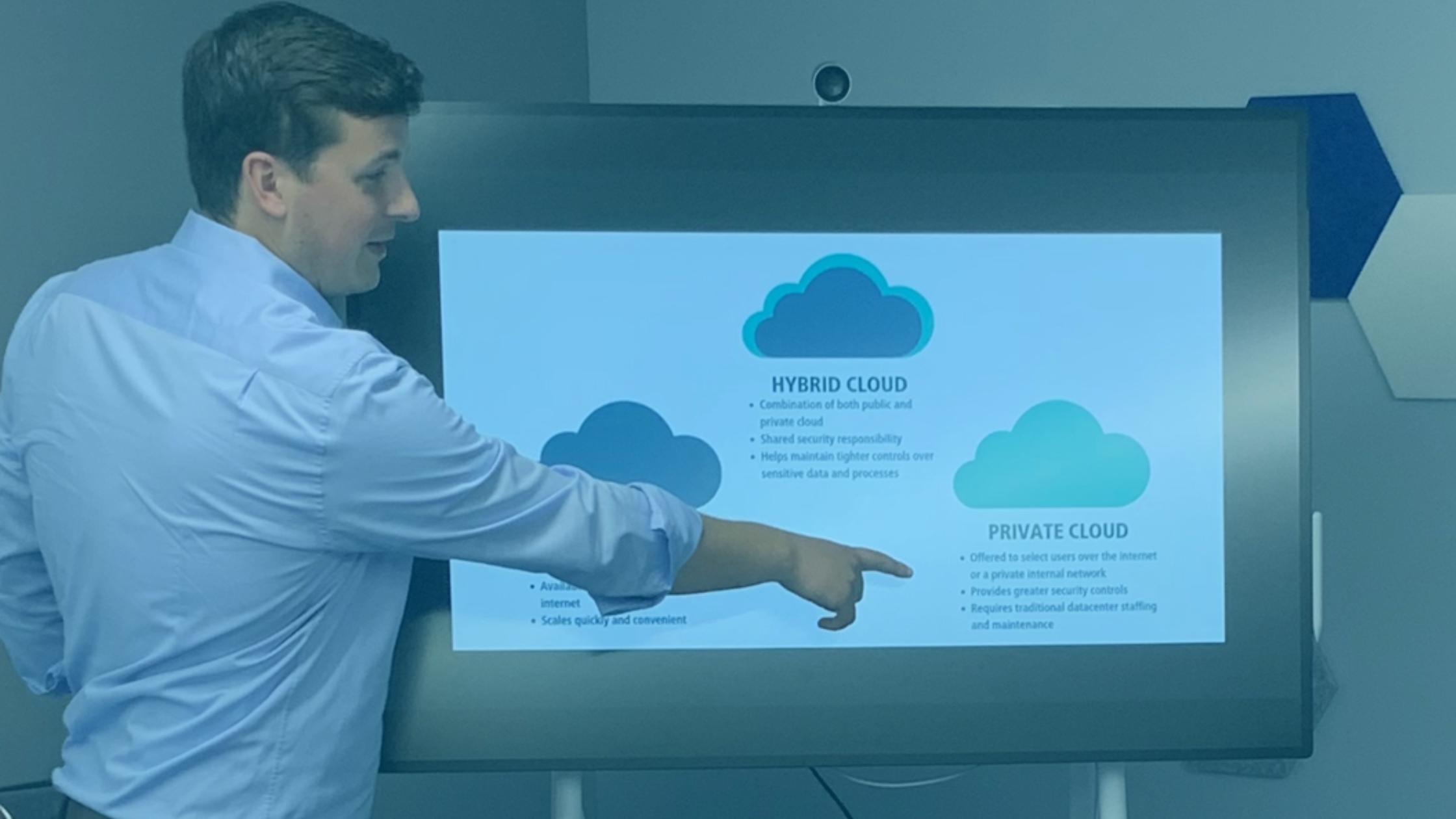
As the argument in favor of cloud computing continues to strengthen in the era of remote work, the debate around private cloud security and public cloud security rages on. Few businesses have the resources to maintain their own data centers, which might seem to indicate that the private cloud is off-limits. Fortunately, that is no longer the case now that a virtual private cloud is a viable option that provides almost all the same benefits of an internal network.
What is a Virtual Private Cloud?
A conventional private cloud is typically hosted in an in-house data center. These are typically expensive to maintain and require a fully staffed IT team, making them impractical for smaller organizations with limited financial and human resources.
A virtual private cloud follows the same concept in that your network and computing resources are exclusive to your organization and your traffic is entirely segmented from the public cloud. However, a VPC takes a software-defined approach to avoid being dependent on any specific physical hardware.
Here are some signs that the virtual private cloud is the right solution for you:
#1. You Handle Highly Sensitive Computing Workloads
Many organizations operate in highly regulated sectors, such as defense or healthcare. These businesses face additional challenges when it comes to cloud migrations, such as compliance with DFARS and SOC 2.
If your business handles classified data on behalf of its clients, then you will need to take some extra steps to uphold the demands of security and regulatory compliance. With a virtual private cloud, you can add that vital extra layer of protection via a private IP subnet or virtual LAN.
If you require high levels of security, here are some use-cases for a private virtual cloud:
→ You handle sensitive data subject to strict regulations (e.g., healthcare, finance, government).
→ You need complete control over your network security and access policies.
#2. You Lack Visibility Into Your Computing Resources
One of the biggest drawbacks of the public cloud is you have limited control over the underlying computing resources. While you can generally set the specifications of your virtual machines, access to and control over low-level computing resources and settings is usually impossible.
Consolidating all your computing resources with centralized management and extra security ensures you know exactly who is accessing which data and which controls are there to protect it from threats.
If you crave greater control and visibility, here are some use-cases for a private virtual cloud:
→ You want complete transparency and control over your cloud resources and configurations.
→ You require dedicated resources with predictable performance and no resource competition.
#3. You Don’t Have Control Over Where Your Data Lives
Data sovereignty is a common concern in industries like defense and healthcare. For example, you typically cannot legally store patient health information (PHI) or defense information in a different jurisdiction. However, the public cloud often doesn’t give you any choice in the matter.
If you either don’t know where your data physically resides or have complete control over its location, it may be time to move to the private cloud. Virtual private cloud vendors should also be able to give you full control over where your data lives.
If you need flexibility and scalability, here are some use-cases for a private virtual cloud:
→ Your business needs fluctuate, requiring flexible resource allocation to adapt to changing demands.
→ You want to avoid upfront investments in physical hardware and maximize resource utilization.
#4. Your Internal Infrastructure Lacks Sufficient Capacity
Many established businesses are still heavily reliant on legacy computing architecture, a lot of which doesn’t make a great fit for the public cloud. Furthermore, the costs of migrating data to a major public cloud provider can be complicated and time-consuming.
If your existing computing infrastructure is struggling to keep up with demand, then it might be time to reduce your dependence on specific physical hardware. A virtual private cloud creates a software-defined computing architecture that’s inherently flexible and scalable.
If you lack in-house IT expertise, here are some use-cases for a private virtual cloud:
→ You are a smaller organization with limited IT resources.
→ You prefer to focus on your core business while delegating IT management to a trusted partner.
#5. You Don’t have the necessary in-house IT expertise
In-house data centers can be very costly to maintain, since they require regular upgrades to keep up with ever-growing demand. This typically demands a fully-staffed IT department and the financial backing to ensure continuous improvement and business resilience.
If your company lacks the necessary in-house expertise to maintain its own in-house private cloud, then it may be time to partner with a dependable external vendor. This way, your private cloud can be set up, managed, and maintained on your behalf, much like the public cloud. The added benefit, however, is significantly improved security and granular control over everything from access policies to individual computing assets.
If you have concerns about data sovereignty, here are some use-cases for a private virtual cloud:
→ You need to ensure your data resides within specific geographic boundaries.
→ You require complete control over the location and storage of your data.
Charles IT offers fully managed private cloud solutions that give your employees the freedom to log into their desktops securely from any location. Contact us today for an instant quote!
*Editors note: this blog was originally posted on November 21, 2021 and was updated on December 7, 2023 for accuracy.






